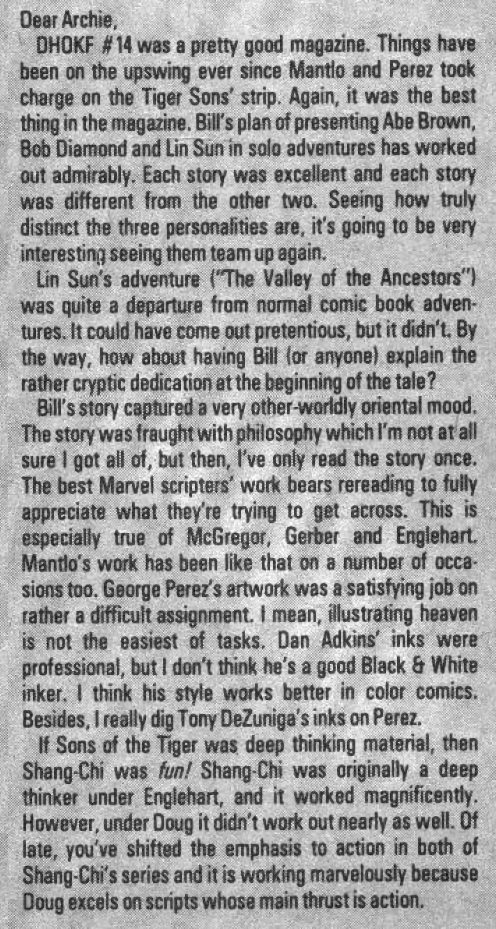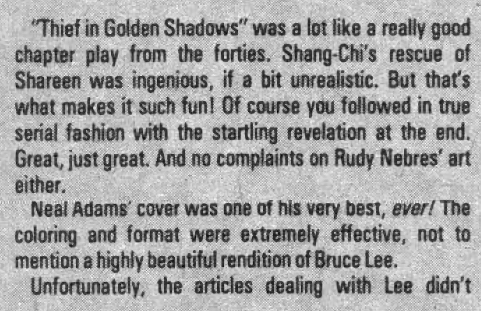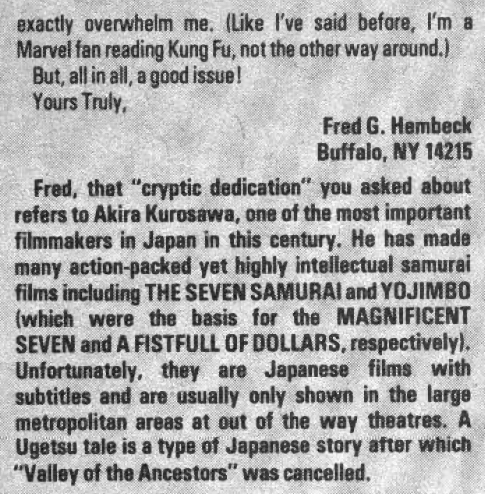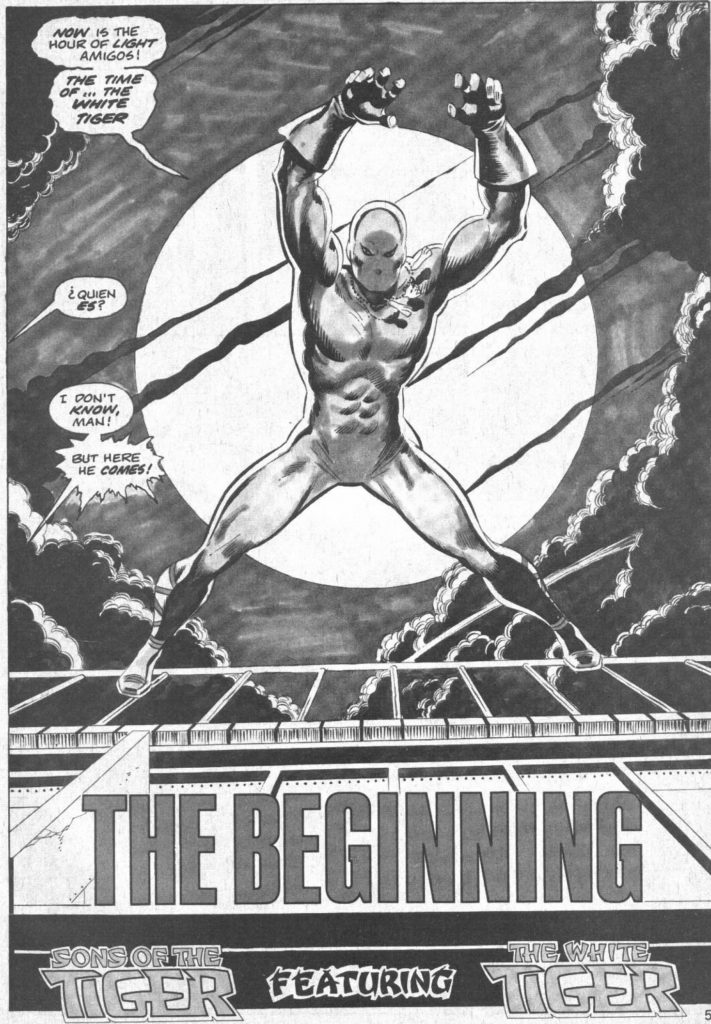
More well-drawn stories about Shang Chi and The Songs of the Tiger–except this time, there are some consequential ones. First, issue #19 introduces White Tiger. He’s a student at Empire State University, who finds all three pieces of the magical tiger amulet after a kid dies.
Throughout, Tiger (real name Hector Ayala) speaks bilingually, which is a nice touch. Storywise, he’s suspected of killing the child, and gets hunted by Prowler.
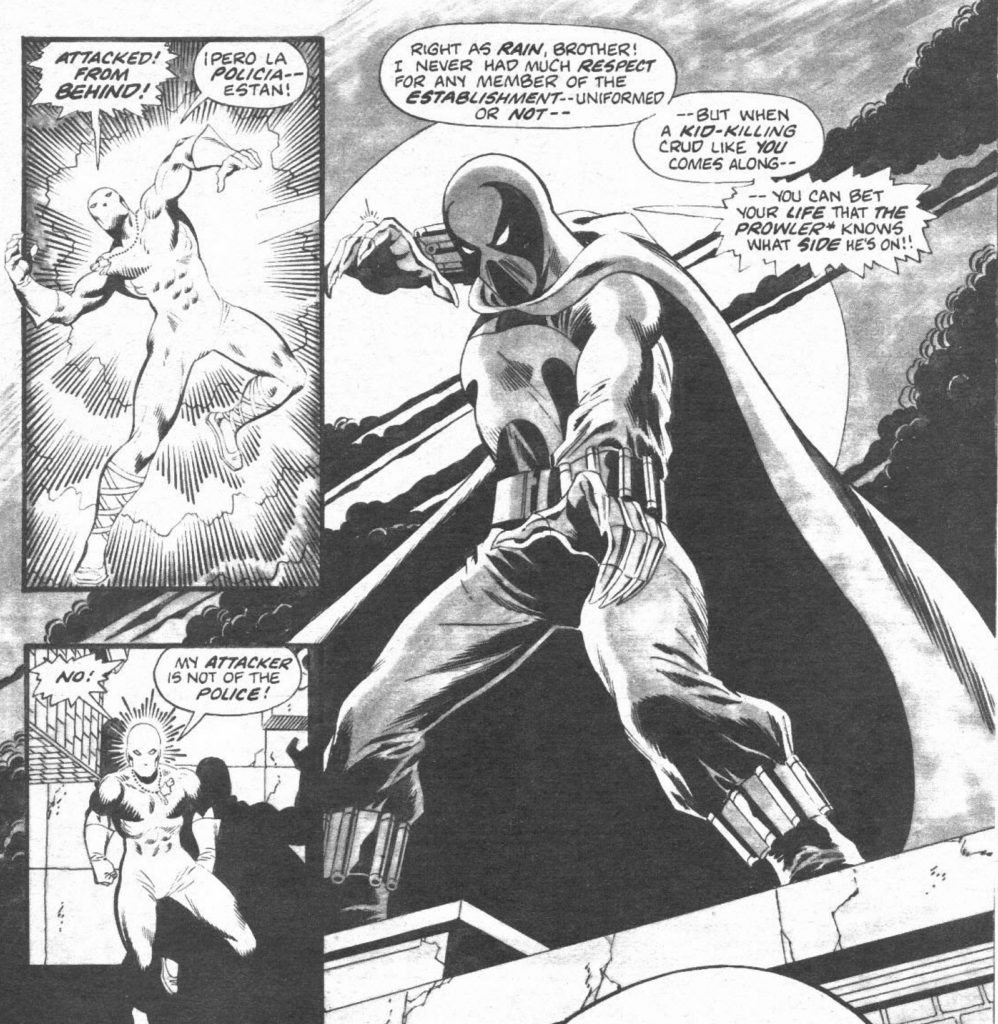
The tale takes an odd turn when Jack of Hearts joins the hunt for White Tiger.




We get Jack’s origin, which involves special chemicals spilling on him (seriously?–the scene is almost identical to Joker’s origin) while he was trying to escape some criminals, and a playing card that happened to be on one of the hoods chasing him.

With his power level, JoH should have no trouble handling White Tiger. But he does.
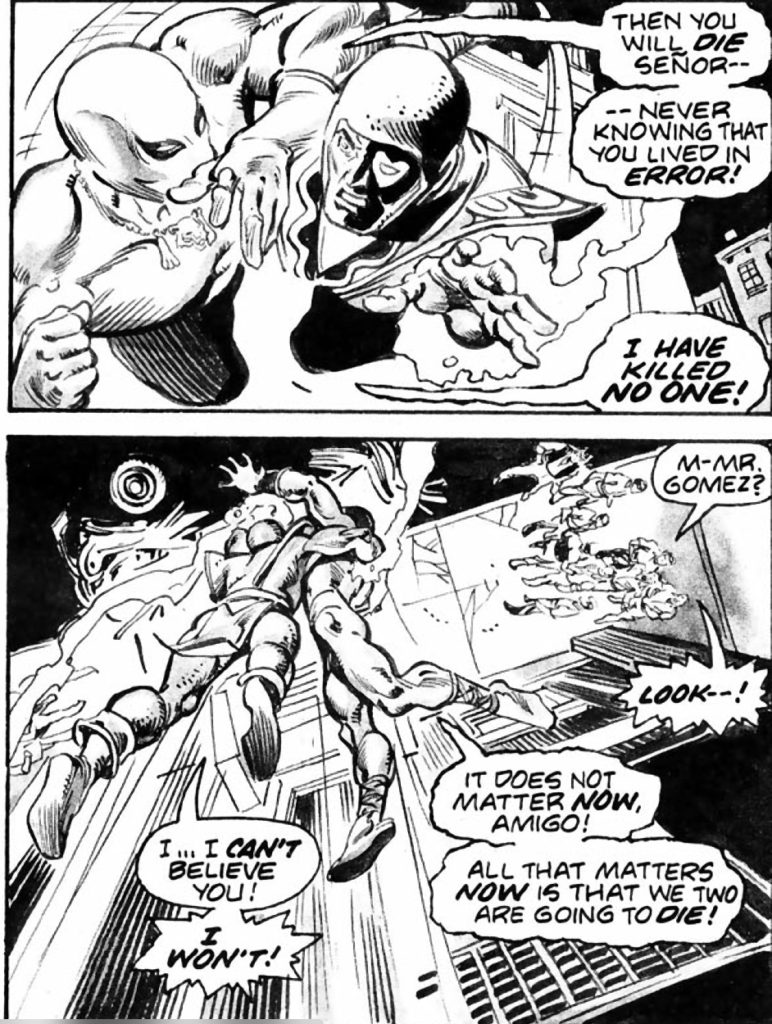


Jack of Hearts is a true superhero with powers, not a martial artist, and he dramatically out-powers White Tiger. But the story is written well enough that you can accept the conflict.
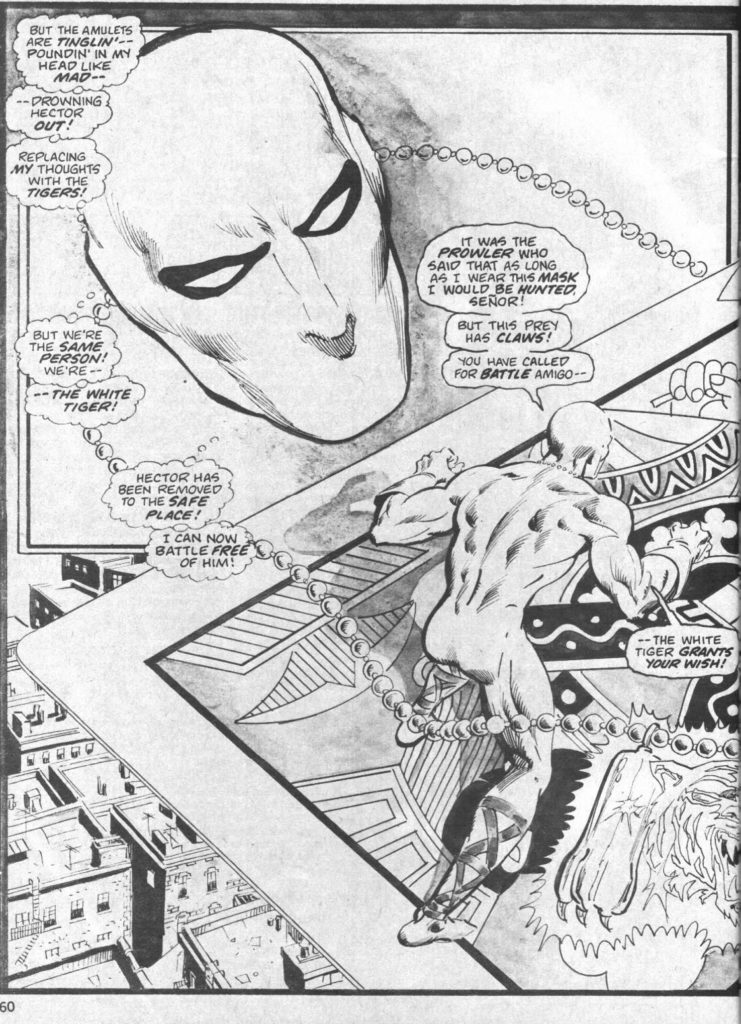
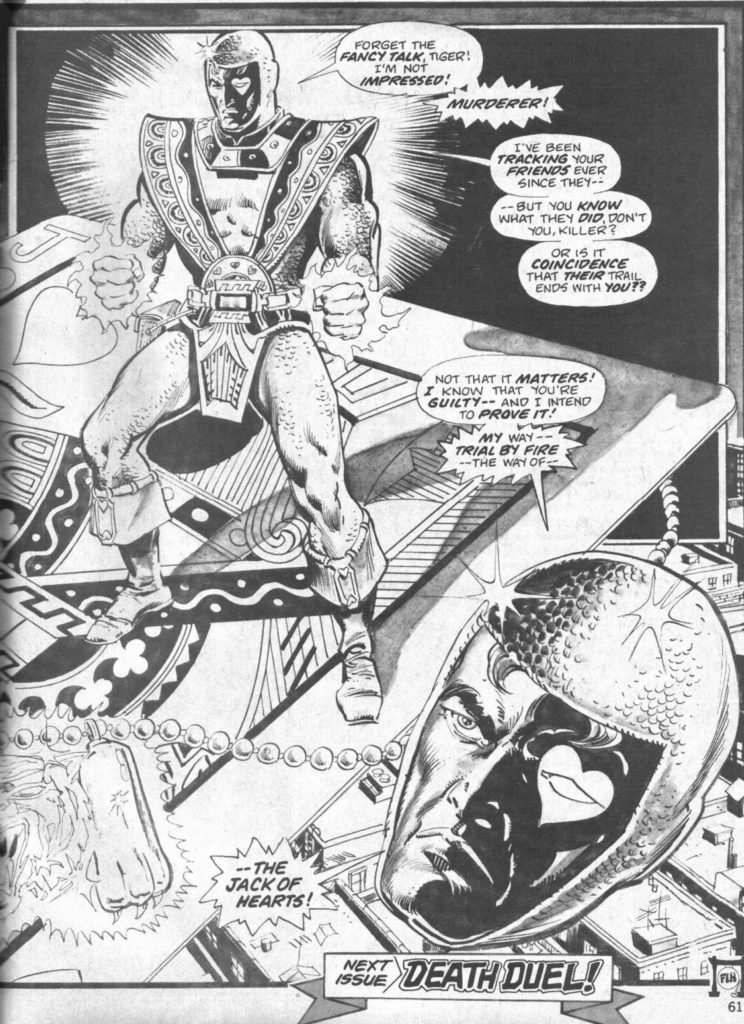
It’s a very good, multi-issue story by Bill Mantlo and George Perez. Issue #25 skips the Sons feature due to George Perez deservedly becoming an artist in much higher demand. Here’s the edtorial explanation:
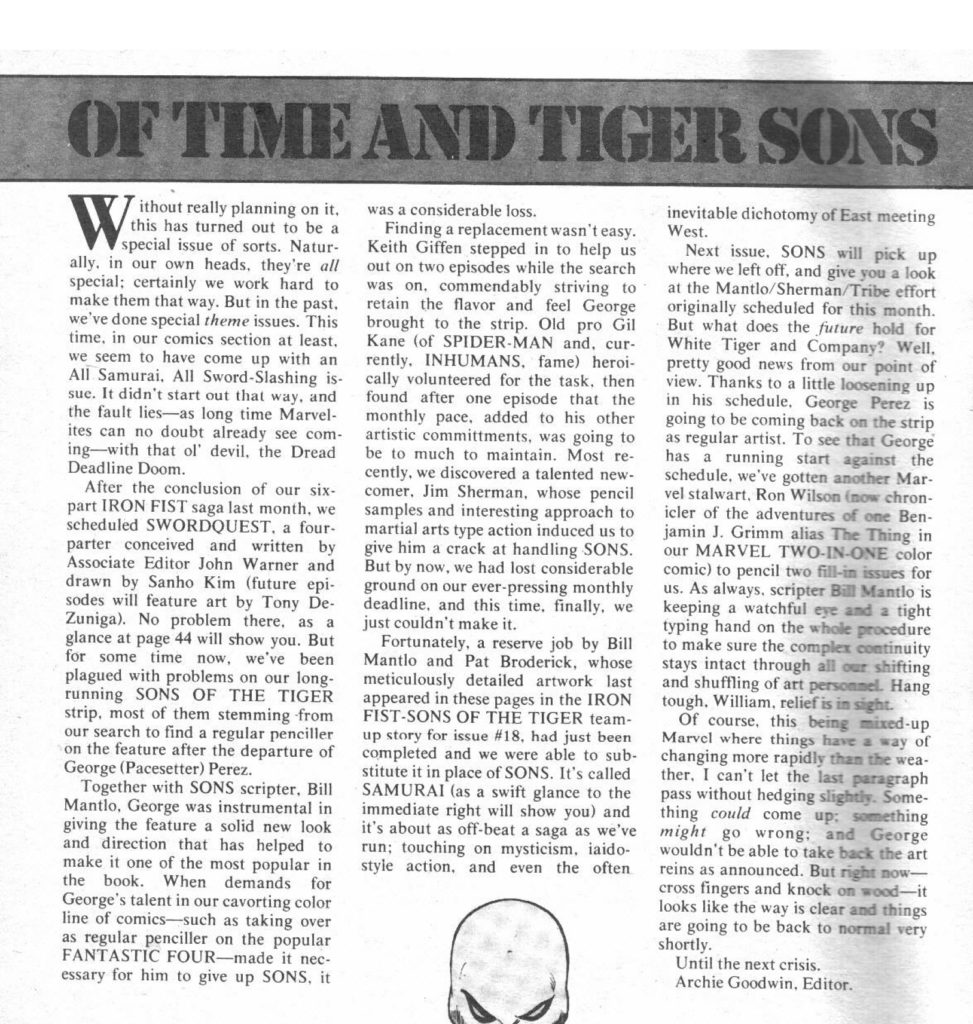
While I like Marvel’s habit of over-explaining creative team shifts because it does emphasize creators’ roles in an industry that is notorious for overlooking them, but I can’t hep wondering if the real truth is that Perez’s page rate went up.
Also, Shang Chi leaves this comic, with Iron Fist taking over. Here, Fist punches a train.

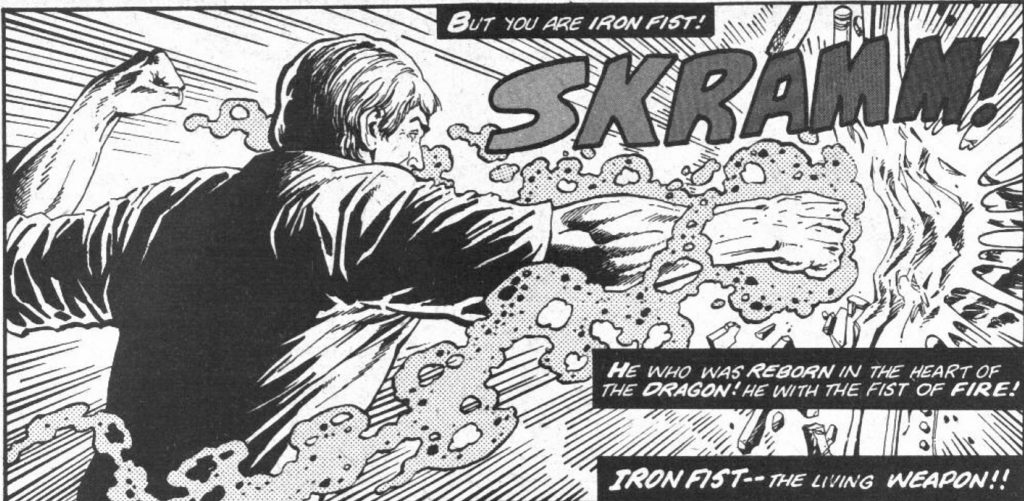
I didn’t know he could stop a subway by punching it. And you have to love that the sound effect, when he stops a train that’s about to kill a woman, is “Skramm!” Get away, train!
These were some really good issues of an up-to-now mediocre magazine–largely due to the White Tiger story. And a cool pin-up!

All that, and letters from Ralph Macchio and cartoonist extraordinaire Fred Hembeck.
